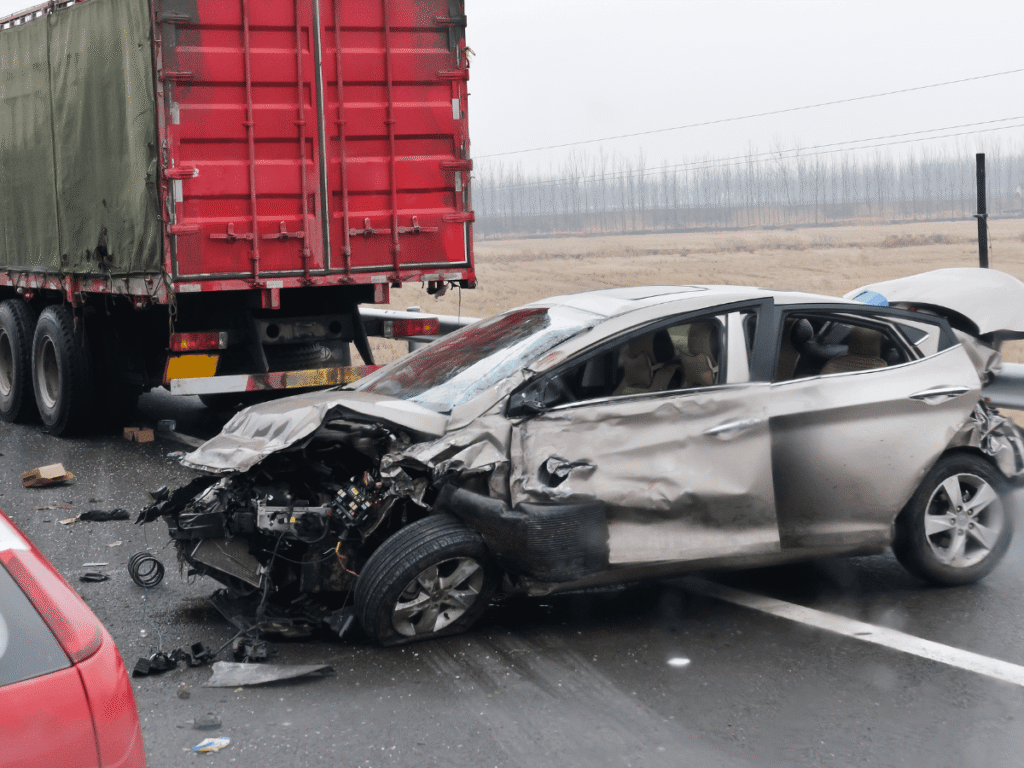Who’s at Fault When an AI-Driven Truck Crashes? What You Need to Know

Autonomous vehicles are no longer science fiction—they’re on real roads, hauling real freight. From pilot programs on Wyoming’s highways to long-haul routes across the Midwest, AI-operated trucks are becoming a regular part of the commercial transportation landscape.
As these AI-driven trucks become more common, so do the legal questions when something goes wrong. Who is responsible when a self-driving truck crashes? Can a company blame the algorithm? What if the truck has a human override system, but no one intervenes in time?
At Steven Titus & Associates, P.C., we know how fast the legal landscape is shifting—and how important it is for injury victims to understand their rights.
If you’ve been injured in an autonomous truck accident, here’s what you need to know about liability, fault, and how traditional truck liability laws are evolving in the age of commercial vehicle automation.
Understanding the Technology Behind Autonomous Trucks
Before diving into liability, it’s helpful to understand what autonomous really means. Most AI-driven trucks on the road today aren’t fully driverless. They fall into Levels 2 through 4 on the SAE (Society of Automotive Engineers) automation scale:
- Level 2: The vehicle assists with both steering and acceleration, but a human driver must remain engaged.
- Level 3: The vehicle can operate itself in certain conditions but expects the driver to take over when prompted.
- Level 4: The truck can operate without a human driver within specific environments or routes.
As these systems advance, liability becomes less about who was driving and more about what failed—software, hardware, or human judgment.
Determining Fault in Self-Driving Truck Crashes
In traditional truck accidents, the fault is typically assigned to one or more of the following:
- The driver
- The trucking company
- A third-party vehicle
- The vehicle manufacturer (in rare cases)
In self-driving truck crashes, the calculus changes. The fault could lie with the following:
- The autonomous software developer
- The sensor/hardware manufacturer
- The fleet operator or trucking company
- The safety driver (if present)
- The vehicle maintenance crew
Determining liability in an AI-driven truck crash often requires analyzing digital logs, sensor data, vehicle programming, and human oversight protocols.
Common Liability Scenarios in Autonomous Truck Accidents
Software Malfunction
If the truck’s AI fails to recognize a pedestrian, misjudges a turn, or fails to stop at a red light, this may point to a software design flaw. In this case, the software developer—or the manufacturer who installed the system—could be held liable under product liability law.
Proving that software design issues caused an accident could become extremely complicated. It would require expert testimony and technical discovery to analyze how the AI software interpreted the environment.
Hardware or Sensor Failure
AI trucks rely on radar, lidar, GPS, and cameras to see their surroundings. If a sensor malfunctions due to manufacturing defects or poor maintenance and causes an accident, liability could fall on:
- The hardware manufacturer
- The fleet operator, for failing to maintain or inspect the equipment
This shifts the conversation from traditional negligence to product failure and corporate responsibility.
Human Override Errors
Some AI trucks include a human operator in the cab who can take control in emergencies. If that person fails to intervene when the truck drifts into another lane or doesn’t brake in time, the safety driver could share liability.
The trucking company may also be at fault if:
- The operator was inadequately trained
- Company policies discouraged intervention
- There were unclear protocols on when to override the system
This hybrid fault model is unique to commercial vehicle automation, where both man and machine can make mistakes.
Trucking Company Negligence
Even in the AI era, trucking companies retain responsibility for:
- Vetting their technology partners
- Monitoring performance logs
- Complying with state and federal safety regulations
If a company deploys a fleet of autonomous trucks without proper oversight or uses experimental software on public roads without sufficient testing, that’s corporate negligence—and it’s actionable under Wyoming law.
Traditional Negligence Standards Still Apply
Under Wyoming’s negligence laws, a personal injury plaintiff must prove:
- Duty of care
- Breach of duty
- Causation
- Damages
In AI truck cases, the breach could involve:
- Faulty software code
- Inadequate safety measures
- Human failure to override
- Failure to update AI protocols
Proving a breach of duty may involve reviewing lines of code, training data, or sensor calibration logs—all of which require specialized legal and technical expertise.
How Can a Personal Injury Victim Hold an AI Truck Company Accountable?
If you’ve been hit by an autonomous truck in or around Gillette, here’s what you should do:
1. Call 911 and Seek Medical Attention
This documents your injuries and creates a crash report that could later support your claim.
2. Document the Scene
Take photos or video of the vehicle, road conditions, skid marks, and any signage. AI trucks often include exterior sensors and may record footage useful to your case.
3. Talk to a Campbell County Truck Accident Lawyer Right Away
Autonomous truck accidents are not standard personal injury cases. These lawsuits often involve:
- Multiple corporate defendants
- Technical discovery battles
- Insurance disputes over emerging liability laws
Working with a firm like Steven Titus & Associates, P.C., ensures you’re prepared to face off against major corporations and emerging legal defenses.
Why This Matters in Wyoming
Wyoming is one of the leading states in the U.S. for testing commercial vehicle automation. As self-driving trucks become more common on I-90 and U.S. 14, AI truck liability cases are bound to become a serious legal issue in the state.
If you’re involved in a crash with an AI-operated vehicle, you’re probably facing a company with deep pockets, cutting-edge technology, and a legal team that’s likely to deflect blame. That’s why working with a law firm that understands both personal injury law and the complexities of automation liability can make all the difference.
Speak With an Experienced Gillette Truck Accident Lawyer
If you or a loved one has been injured in a self-driving truck crash, don’t wait to take legal action. That way, your Gillette truck accident attorney can start preserving evidence, identifying liable parties, and building your case right away, and this could make a big difference in the type of settlement you receive.
Contact Steven Titus & Associates, P.C., today. We know how to litigate complex claims, and we’re prepared to hold the right people accountable for your injuries. Call (307) 257-7800 to schedule a free consultation.

Your FREE Case Strategy Session
On All Injury and Criminal Cases
Contact our office right now to speak to
someone who wants to help you.